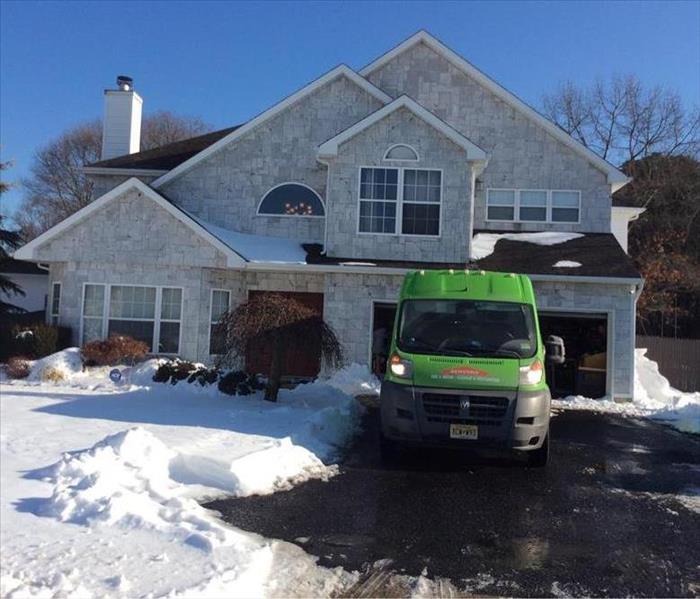What can we expect for the winter of 2020?
1/6/2020 (Permalink)
According to the The 2020 Old Farmer’s Almanac, the winter of 2020 is predicted to be a cold, snowy and wet one. While many regions will be slammed with snow (no less than SEVEN big snowstorms coast to coast!), New England weather is expected to be more rainy and cold, making ice and slush a large concern.
Your house can take a toll with all this wet weather, so make sure you take the necessary steps to winterize your home and prevent damage during severe weather.
The following precautions can be very helpful in the run-up to any winter storm or freezing condition.
Outside
- Clogged gutters should be cleared of fallen leaves and twigs to let liquid flow and not get a chance to freeze so gutters weigh down.
- Worn out roofing - If the seams and flashing on your roof are worn out, this could lead to leaking and water damage when snow starts to melt.
- Ice Dams on the Roof - ice and water repeatedly thaw and refreeze and start to form an ice dam along the edge of the roof. Ice Dams are perhaps the most common cause of winter water damage is from ice dams that form on the roof.
One of the tell-tale signs of an ice dam is a group of icicles hanging down. In order to prevent ice dams, you can add extra insulation to prevent dramatic temperature swings on your roof. Check for water stains in the wood, and make necessary repair to prevent future leaks.
It’s also a good idea to inspect your roof from both the outside and inside at least twice a year. If you notice any areas that are worn out or damaged, make repairs right away. In many situations you can fix minor gaps with roofing caulk.
Inside
- Exposed water pipes should be wrapped and insulated.
- Faucets should be turned on to allow a trickle to come through to prevent freezing and pipes bursting. This is especially true during a freeze lasting several days.
- Make sure thermostat is set to constant temperature and doesn’t dip below 55 degrees.
If you plan on leaving your house for an extended period of time, AVOID WATER DAMAGE by turning off your main water source and keep the thermostat set at sixty degrees.
Should you happen to experience ANY kind of damage this winter, call SERVPRO of Hackensack/Little Ferry and we will come make sure it looks “Like it never even happened.”





 24/7 Emergency Service
24/7 Emergency Service
